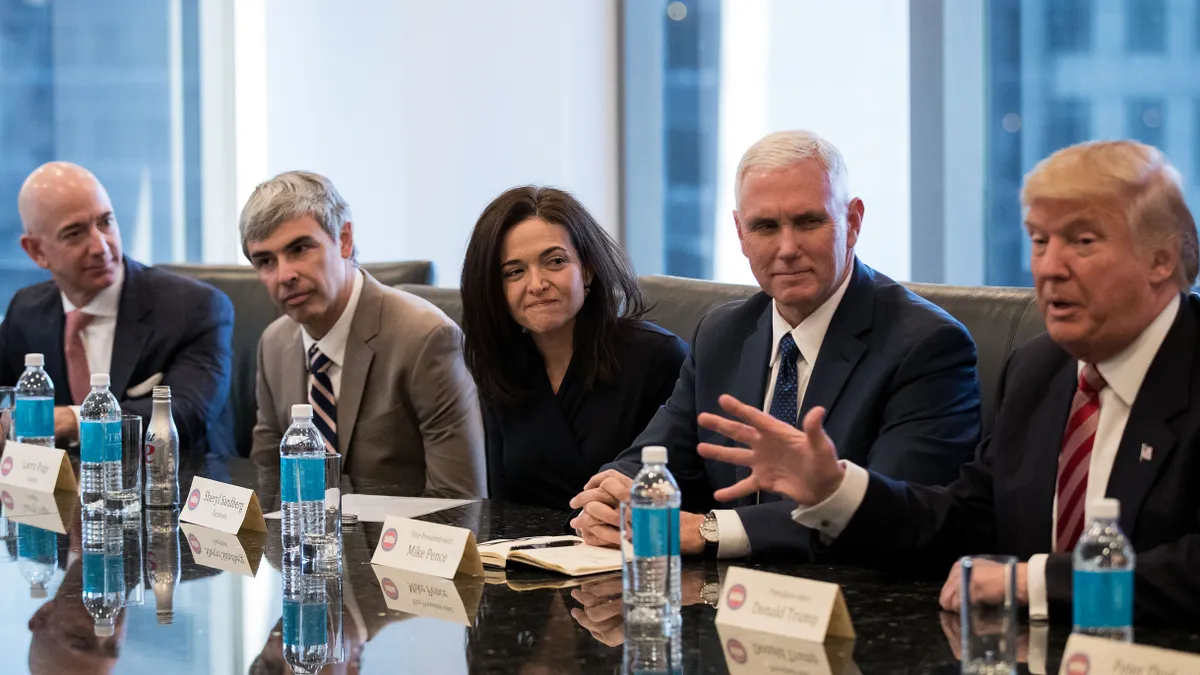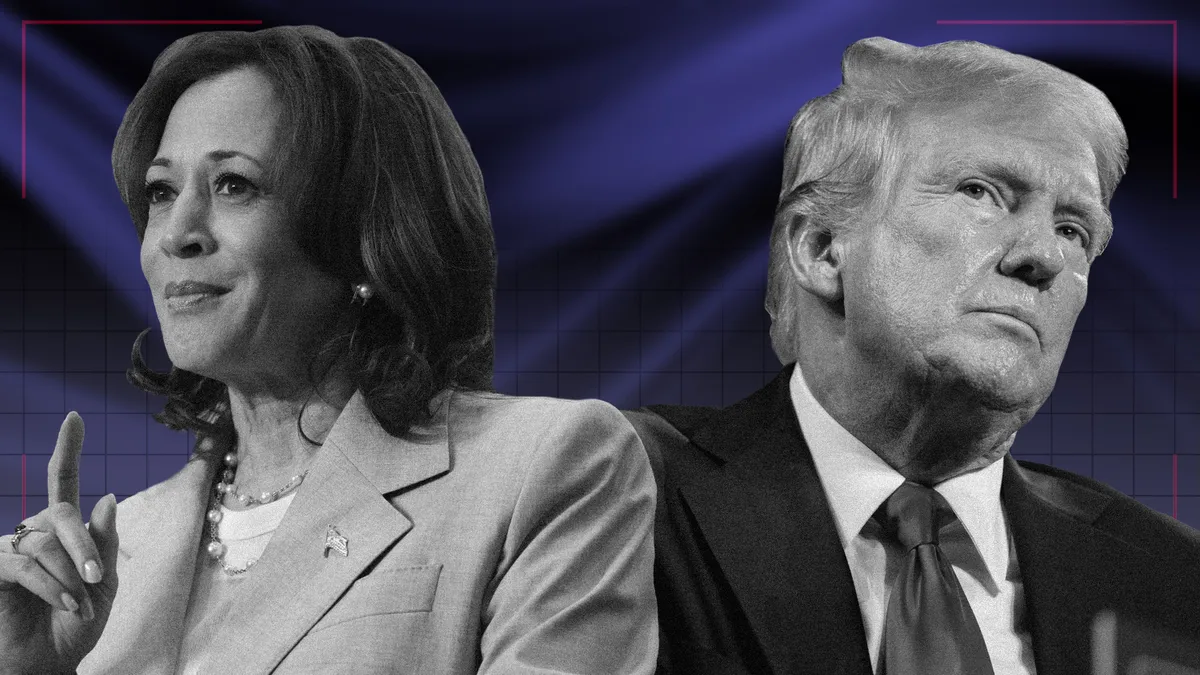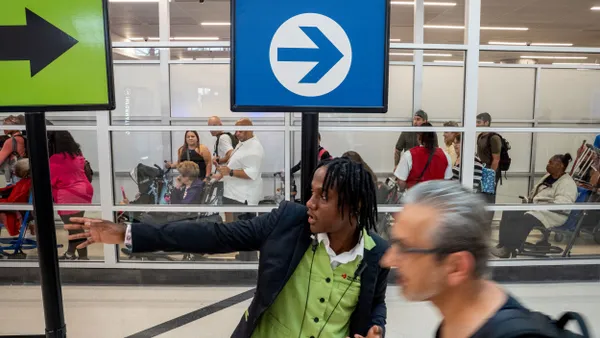Dive Brief:
- Six in 10 U.S. IT leaders with large development teams say President Donald Trump’s proposed changes to the H-1B program will make skilled IT talent more scarce and increase the cost to hire skilled IT talent, according to a Harvey Nash Pulse Report released Wednesday. The survey included responses from more than 170 U.S. IT leaders across sectors.
- Almost two-thirds of companies with more than 50 developers said they believe the current H-1B visa program as it stands has helped businesses successfully access highly skilled IT talent. As Bob Miano, CEO and president of Harvey Nash USA notes in a press release, the short-term effect of proposed H-1B program changes will be increased costs to the employer and "more jobs will be shipped offshore."
- Despite the potential for changes, 66% of respondents said they do not plan to slow product development plans or investments as a result of Trump’s executive order.
Dive Insight:
Trump’s primary goal for H-1B reform is to encourage businesses to hire Americans first. But companies say the changes could actually drive them to look for help offshore instead. It all comes down to whether the H-1B program is being used as a way to access cheap overseas labor, or whether it’s being used as intended to access specialty skills that are hard to find in the U.S.
Federal agencies are working to make it clear what makes an individual qualified for an H-1B visa. The USCIS recently reminded businesses that just because a foreign worker is a computer programmer is "not sufficient to establish the position as a specialty occupation," particularly if they have only an associates degree or are going into an entry level position. Instead, some computer programmers may have to illustrate through additional info why they are a "specialty" worker.
The departments of State, Homeland Security, Labor and Justice have until November to review the H-1B policy and recommend changes to the Trump administration.















